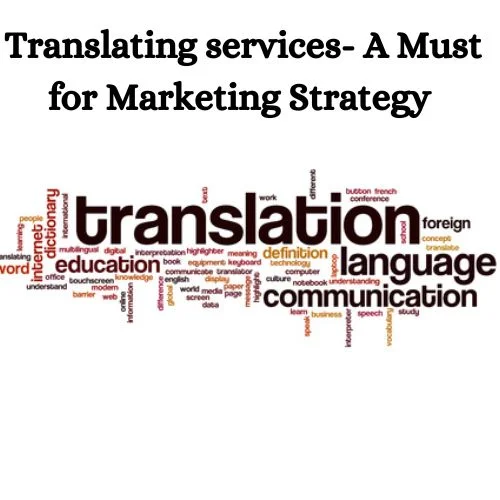A thorough business plan provides a framework for businesses to achieve their objectives. It assists them in remaining market-relevant and identifying development prospects. Here is a guide for you to find the best business strategy for your business.
Introduction
Any firm that wants to expand in a strategic way needs a business plan, but what exactly is a business strategy?
A business strategy is a document that outlines a plan of action to assist executives in achieving organisational goals. The comprehensive strategy identifies business requirements in order to guide the recruiting process and influence resource allocation. It gives diverse teams a clear direction to combine their abilities in order to support the company’s aims. Businesses get a competitive advantage in the market, enhance customer satisfaction, and mobilise their operations as a consequence.
Today’s business is not the same as yesterday’s, nor will it be tomorrow. As a result, every company plan must be adaptable and flexible, and anchored in up-to-date research.
Why is a business strategy important?
It is the basis upon which we, as company owners, create our businesses.
Strategy assists us in defining our company, as well as providing it with a set of values and a sense of purpose. It enables us to comprehend what success entails. It serves as a road map for our company, showing us where we’re going and where we should stop along the route.
After all, who would go on a voyage without knowing where they were going or how they were going to get there?
It’s so surprising that, according to a recent Barclays poll, 47% of small business owners have no clear plan in place to assist their company’s growth. Of the total, 25% have an informal, verbal business strategy, while the remaining 23% have no plan at all.
A business strategy enables decision-makers to spot emerging trends and future development prospects. Businesses must modify and reassess their methods on a regular basis in order to remain competitive. As a result, a business strategy is a dynamic resource that companies may adjust and improve in response to market social and technical developments.
Businesses are encouraged to reflect as part of their business strategy. It provides insight into the internal and external performance of your business. Businesses that can recognise their own strengths and shortcomings have a better understanding of their own capabilities.
5 Components of a business strategy
Strategic planning, like visioning, is not something that can be done on the spur of the moment. Strategic planning is frequently linked to the completion of a SWOT analysis. Participants attend an all-day seminar and leave with a list of opportunities that includes vague ideas like “grow worldwide.” There is no market analysis, research, or business intelligence on their list. They blame the plan when their ill-advised techniques fail.
Vision
Your business’s goal or mission statement indicates a market need that your business wants to fill. Any business plan you undertake should always be guided by this vision. Consider a business strategy to be an action plan that outlines how people in charge should attain the organization’s aim.
Your vision statement will be shorter and more succinct, and it will depict how your business should appear in five years, ten years, or two decades. These elements of your strategic plan may take some time to complete, but they are the fundamental foundations for continued development of the strategy.
You’ll be taking a huge first step toward creating a strategy that will lead you to success if you make your thoughts about your company’s purpose and values tangible.
Values
Your business plan should express clear instructions on what individuals should and should not do based on the organization’s fundamental values. Coworkers are more likely to hold themselves responsible to the organization’s standards if these principles are written down.
Your company’s core values articulate the essential “musts” and “must nots” that must guide executives and workers in their day-to-day and long-term decision-making.
Experts often advise against imposing these principles on a corporation from the top down. Rather, focus on honing the principles that already exist in your company’s culture. You’re probably already aware of these basic beliefs.
SWOT analysis
SWOT analysis (strengths, weaknesses, opportunities, and threats) is a framework for assessing a company’s competitive position and developing strategic plans. Internal and external elements, as well as existing and future possibilities, are all evaluated in a SWOT analysis. It’s a glimpse of the options available to you, the potential difficulties you’ll face, and the resources you may use to aid you along the road. Identifying these four important areas will help you prepare for any obstacles you may face along the route.
It reveals which strengths you may leverage and which deficiencies you should fix.
The importance of a SWOT analysis cannot be overstated. “Winners recognise their limits while focusing on their strengths; losers recognise their strengths while focusing on their limitations,” as the saying goes. Negative thinking is a weakness, but positive thinking is a strength.
Objectives
Your long-term goals are what you’ll need to focus on in order to make your vision a reality. These goals are usually set over a period of many years or more.
You’ll put the broad ways you’ll use to attain your objectives, and hence your vision, under “generic tactics.” You may next structure the shorter-term goals and performance initiatives that specify the “who, what, and when” resources you’ll use to achieve them once these are in place. To go even more precise about operational issues, you’ll need to drill down and address the question of how you plan to achieve your goals.
Following a SWOT analysis to identify your resources, you can distribute them appropriately. Operational techniques prioritise what needs to be done right away vs what can wait.
Analysis
You’ll need a system in place to measure your company’s output and performance against pre-determined goals. You’ll also need a financial analysis that considers previous and future performance. Your strategic plan’s figures don’t have to be complicated, but they should assist you — and potential investors — understand your financial resources.
You don’t need a complicated, multi-page strategy, either. Some entrepreneurs have found success with a brief, but well-crafted document whose concision actually aids in keeping everyone in the organisation focused on the same objectives. An entrepreneur and his or her team will be able to compress their company’s essential identity and goals down to their most readily understood, actionable aspects using this form of shorter strategy.
The best business strategy is one that helps you to achieve your business goals. A good business strategy will help you to identify the most important issues, and how to deal with them. A good business strategy will help you to make the right decisions at the right time. A good business strategy will ensure that your company grows and develops into a successful company in the future.
Which business strategy have you tried? Let us know in the comments below if we should add any more tips for this type!















